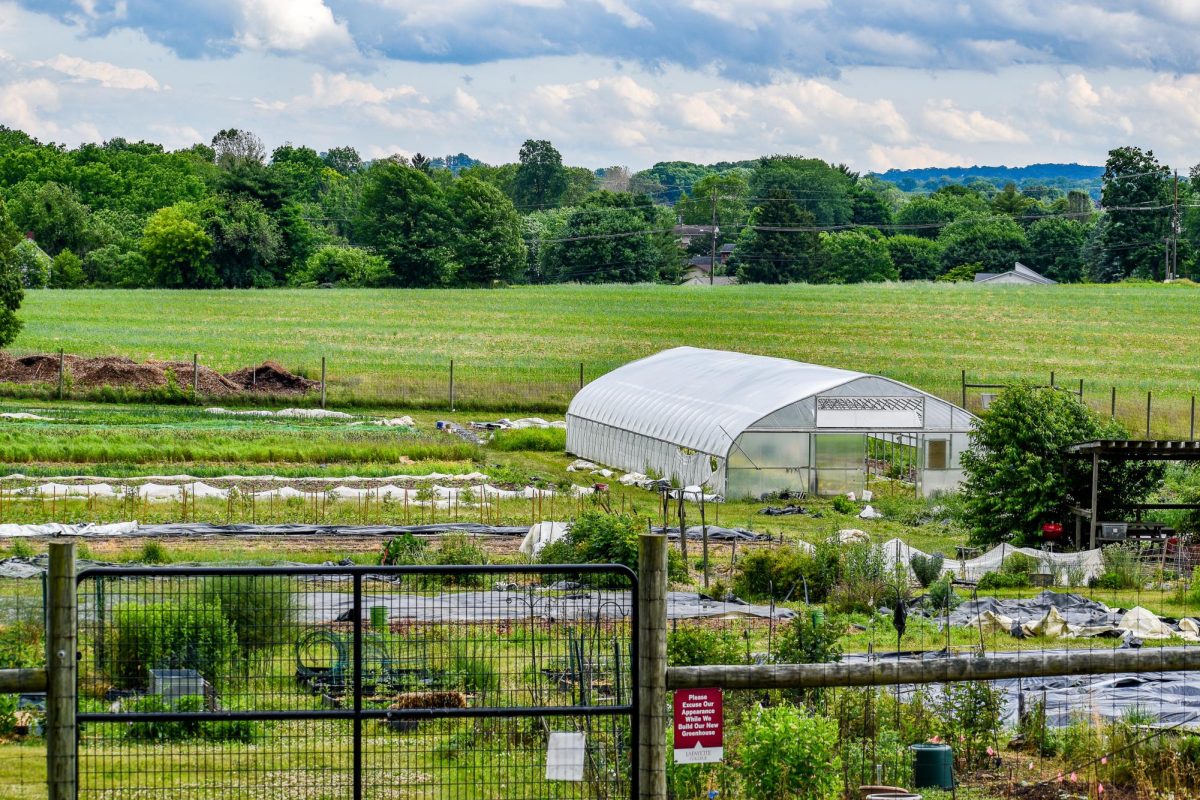Lack of access to nutritious food continues to be a prevalent global issue. A team of Lafayette professors and students is addressing this in the greater Easton community through their food justice project and advocacy efforts.
The project began last summer with a group of professors who had an interest in food justice and a drive to make an impact. Assistant environmental science and studies professor Ernest Nkansah-Dwamena, assistant mechanical engineering professor Rohan Prabhu and anthropology and sociology professor Rui Jie Peng were joined by students Ariana Welch ‘26, Melanie Acosta ‘24 and Camille Voo ‘26 to form this interdisciplinary research team.
“Our goal is to not so much come up with a solution … but more so spending a couple of years understanding the problem itself,” Prabhu said. “What we’re trying to do is create resources that the community can use to understand their problems better and come up with solutions themselves.”
Through visiting community partners, conducting interviews and assessing sites, the group is working towards the goal of addressing and improving Easton’s status as a food desert, an area with limited access to healthy and affordable food.
According to its organizers, the project will assess three facets of food justice: the impact of community gardens on food insecurity, the ways that transportation plays a role in the lack of access and the progression of the food justice movement in Easton.
Currently, the team is focusing on community gardens and has found them to be socially and culturally significant to the area. Not only do participants in the project learn how to grow and prepare food, but they also gain access to produce that may otherwise be difficult to find.
“There was a specific type of pepper that [a participant] hadn’t been able to find in any of the grocery stores that they were growing at the farm,” Welch said about Easton Urban Farms, one of Easton’s community gardens. “She was like, ‘This is the food from my home. This is what I need to be eating.’”
Over the summer, the project’s research was centered on how Easton’s transportation structure exacerbates challenges to food access. Infrastructure, including bus systems, bike lanes and sidewalks, can prevent consumers from physically getting to the market or grocery store.
“It’s really hard for people who ride the bus to also get to the grocery store because they’re working long hours and they’re having to wait another hour or so just commuting back and forth for work,” Welch said.
More broadly, the team is striving to analyze Easton’s constantly changing community for future success in addressing food insecurity.
“We’re assessing the broader role of development in shaping the trajectory of food justice in Easton,” Nkansah-Dwamena wrote in an email.




































































































